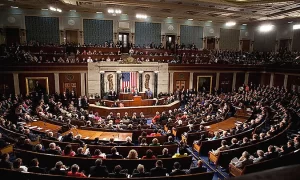what is a kangaroo court
Kangaroo Courts and the Shadows of Justice: Unraveling the Complex World of Municipal Courts
Kangaroo courts, a term often used to describe substandard and defective tribunals within various areas of American law, have been a subject of interest among legal scholars and practitioners. These courts, characterized by their perceived lack of fairness, informality, and inequity, pose challenges to our legal system’s fidelity to fundamental constitutional ideals. Professor Alexandra Natapoff’s exploration of municipal courts sheds light on the world of administration that shares some similarities with these enigmatic kangaroo courts.
Unveiling the World of Municipal Courts
Municipal courts, also known as town, summary, justice, mayor, and police courts, play a significant role in handling misdemeanors and traffic cases. These tribunals are often staffed by nonlawyer judges, and their procedures are marked by informality, conflicts of interest, and a disregard for standard criminal procedure protections. The inferiority of these courts is evident in their structure and quality, with many operating as subsidiary branches of traditional courts.
Exploring the Informality and Inequity
Natapoff’s research highlights the casual and informal nature of municipal courts, which sometimes operate outside the purview of the traditional legal system. These courts lack the usual due process safeguards, leading to a perception of unfair legal decisions. The absence of legal expertise in some municipal courtrooms raises concerns about the accuracy and legality of the outcomes.
The Controversial Comparison: Municipal Courts as Kangaroo Courts
While not identical to the infamous kangaroo courts of history, some of these municipal courts exhibit features associated with the term. They often operate with reduced procedural protections, rely on nonlawyer judges, and prioritize revenue generation for municipalities. The informal, off-the-record proceedings in some municipal courts, combined with the lack of appellate scrutiny, create an environment where unfair legal decisions can prevail. This raises questions about the implications for justice, particularly in marginalized communities.
Implications and Future Directions
Natapoff’s work calls attention to the need for greater scholarly and societal focus on the bottom tier of criminal justice administration. Municipal courts, as a largely overlooked area, deserve more thorough examination and critical analysis. Integrating discussions about these courts into legal education can lead to a better understanding of their functioning and potential reform. As conversations about criminal justice reform gain momentum, considering the role and impact of municipal courts becomes essential.
Conclusion and Moving Forward
The complex landscape of municipal courts offers a unique perspective on the challenges facing the American legal system. While not all municipal courts can be labeled as kangaroo courts, the similarities in informality and inequity cannot be ignored. Addressing these issues requires a multidimensional approach that involves legal scholars, policymakers, and educators. As we strive for a more just and equitable society, understanding the nuances of these courts and their impact on marginalized communities is a crucial step forward.
FAQs
1. What are kangaroo courts? Kangaroo courts are tribunals characterized by their disregard for legal principles and justice, often leading to biased and unfair legal outcomes.
2. How do municipal courts relate to kangaroo courts? While not identical, some features of municipal courts, such as informality and reduced procedural protections, share similarities with the concept of kangaroo courts.
3. Are all municipal courts inferior and inequitable? Not all municipal courts exhibit these characteristics, as some have undergone reforms and operate with greater transparency and professionalism.
4. Why are municipal courts important to study? Municipal courts handle a significant number of cases and contribute to the justice system’s overall functioning. Understanding their dynamics is crucial for legal scholars, policymakers, and educators.
5. How can legal education address the issue of municipal courts? Incorporating discussions about municipal courts into legal education can provide students with a more comprehensive understanding of the criminal justice system and inspire potential reforms.








